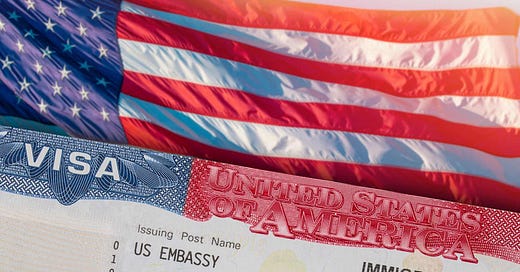Portugal issues travel warning for the US
Another update concerns non-binary travelers: to avoid complications, citizens who identify as non-binary are advised to fill out forms using the gender assigned to them at birth.
The Portuguese government has updated its travel advisory for citizens planning to visit the United States, emphasizing that obtaining a visa or travel authorization does not automatically guarantee entry into the country.
This move aligns with similar warnings issued by other European nations, including Norway, Denmark, Finland, Ireland, Germany, France, and the United Kingdom.
Under the U.S. Visa Waiver Program, which Portugal has participated in since 1999, Portuguese citizens can travel to the U.S. for tourism or business for up to 90 days without a visa.
However, they must obtain an Electronic System for Travel Authorization (ESTA) before their trip.
Despite holding a valid ESTA, final entry permission is at the discretion of U.S. border officials.
Concerns Over Overstays and Immigration Policies
The advisory update, posted on March 25 on the Portal das Comunidades, follows concerns about Portuguese travelers exceeding the 90-day limit.
According to José Cesário, Portugal’s Secretary of State for Portuguese Communities, U.S. authorities closely monitor the number of travelers who fail to leave within the permitted period.
The acceptable overstay rate is capped at 2%, and recent figures indicate that Portuguese travelers have surpassed this threshold.
Cesário stressed the importance of adhering to the Visa Waiver Program rules, highlighting previous government efforts to educate travelers about the risks of overstaying.
The warning comes at a time when the U.S. has adopted stricter immigration policies under the Trump administration, which has increased scrutiny on foreign visitors.
Border Entry and Documentation Requirements
The updated advisory reiterates that final entry approval is determined by U.S. border agents.
To avoid complications, travelers are advised to carry proof of their return flight and to be truthful about their visit’s purpose.
Any discrepancies or false statements, such as claiming a tourist visit while planning to work, could result in denial of entry.
Additionally, new recommendations advise against crossing into Canada or Mexico by land during a visit to the U.S., as re-entry may be questioned.
Unlike air arrivals, entering the U.S. via land borders may require additional visa documentation.
Impact on Non-Binary Travelers
Another significant update addresses non-binary travelers. The U.S. government only recognizes male and female gender categories in official documents.
As a result, Portuguese citizens who identify as non-binary are instructed to fill out forms using the gender assigned to them at birth.
A spokesperson for the U.S. Embassy in Portugal, Marie Blanchard, emphasized that visa applicants must prove their identity and travel intentions to the satisfaction of consular officers.
If there are discrepancies in identification documents, additional verification may be required.
U.S. Crackdown on Unlawful Activities
The Trump administration has also intensified efforts to regulate foreign visitors, including students and activists.
U.S. embassies worldwide have begun circulating warnings on social media, stressing that participation in activities deemed harmful by the U.S. government—such as supporting terrorist organizations or engaging in protests—could result in deportation.
Recent reports indicate that over 300 student visas have been revoked as part of a broader crackdown.
U.S. officials have warned that possessing a visa or ESTA does not guarantee entry, and any visitor found violating U.S. laws or policies may face removal from the country.
As the political climate in the U.S. shifts, Portugal continues to advise its citizens to remain informed and compliant with all entry regulations to ensure smooth travel experiences.




